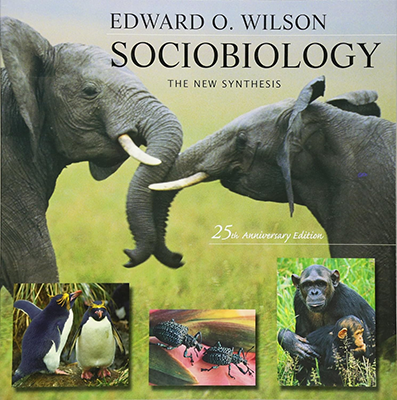Sociobiology
“Sociobiology: The New Synthesis” by Edward O. Wilson is a foundational work in the field of sociobiology, first published in 1975. Here’s a summary:
Introduction to Sociobiology: Wilson introduces the concept of sociobiology, which seeks to understand the biological basis of social behavior in animals, including humans. He argues that social behaviors, such as cooperation, aggression, mating, and parenting, have evolved through natural selection to maximize an individual’s reproductive success.
Evolutionary Foundations: Wilson delves into the evolutionary principles that underpin sociobiology, including kin selection, reciprocal altruism, and sexual selection. He discusses how these mechanisms shape social behaviors in various species.
The Genetic Basis of Social Behavior: Wilson explores the genetic basis of social behaviors, emphasizing the role of genes in shaping behavior and the transmission of social traits across generations. He discusses how genes influence behaviors such as territoriality, aggression, and parental care.
Social Insects: Wilson examines social insects, such as ants, bees, and termites, as model systems for studying social behavior. He discusses the division of labor, communication, and cooperation within insect societies, highlighting parallels with human societies.
Human Sociobiology: Wilson applies sociobiological principles to human behavior, arguing that many aspects of human sociality, including mating preferences, family dynamics, and altruism, can be understood through an evolutionary lens. He discusses controversial topics such as the genetic basis of intelligence and the evolution of morality.
Criticisms and Controversies: Wilson addresses criticisms of sociobiology, including concerns about genetic determinism, reductionism, and the potential misuse of sociobiological ideas to justify social inequalities. He acknowledges these concerns but defends the scientific validity of sociobiology as a framework for understanding social behavior.
Future Directions: Wilson speculates on the future of sociobiology and its potential applications in fields such as psychology, anthropology, and conservation biology. He emphasizes the importance of interdisciplinary research and collaboration in advancing our understanding of social behavior across different species.
Overall, “Sociobiology: The New Synthesis” presents a comprehensive overview of the biological foundations of social behavior, from insects to humans, and explores the implications of sociobiological theory for our understanding of the natural world and ourselves.

